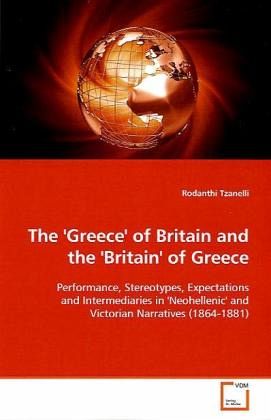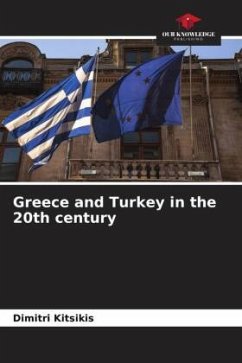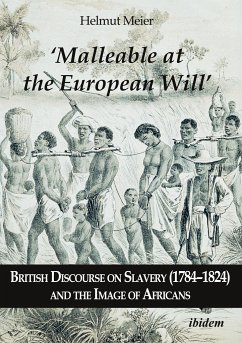
The 'Greece' of Britain and the 'Britain' of Greece
Performance, Stereotypes, Expectations and Intermediaries in 'Neohellenic' and Victorian Narratives (1864-1881)
Versandkostenfrei!
Versandfertig in 6-10 Tagen
52,99 €
inkl. MwSt.

PAYBACK Punkte
26 °P sammeln!
The role Western philhellenism played in theproduction of modern Greek identity has been theobject of extensive research. Scholars focused on theimportance Hellenic culture acquired in Europeandiscourses of modernity and the maintenance ofnational and imperial self-images in the West. Thepresent book re-conceptualises the historicalemergence of such discursive frameworks as gatekeepers of hegemonic and counter-hegemonicprojects. The specific context it explores is that ofAnglo-Greek cultural exchange in the third quarter ofthe nineteenth century (1864-1881). It is argued thatGreece s ambiguous...
The role Western philhellenism played in the
production of modern Greek identity has been the
object of extensive research. Scholars focused on the
importance Hellenic culture acquired in European
discourses of modernity and the maintenance of
national and imperial self-images in the West. The
present book re-conceptualises the historical
emergence of such discursive frameworks as gatekeepers of hegemonic and counter-hegemonic
projects. The specific context it explores is that of
Anglo-Greek cultural exchange in the third quarter of
the nineteenth century (1864-1881). It is argued that
Greece s ambiguous attitude toward British demands
for Greek modernisation, and British frustration
originating in modern Greek irredentism and internal
disorder, define the frame of resistance. Constant
miscommunication between Greeks and
Britons made co-operation impossible and assisted in
the production of Greek counter-hegemony. The
specific path of Greek modernisation, state, and
nation-formation was developed in several key
political/discursive conflicts around: (i) Crime and
disorder, (ii) the rationalisation of historical
past, and (iii) the nationalist project of the Great
Idea .
production of modern Greek identity has been the
object of extensive research. Scholars focused on the
importance Hellenic culture acquired in European
discourses of modernity and the maintenance of
national and imperial self-images in the West. The
present book re-conceptualises the historical
emergence of such discursive frameworks as gatekeepers of hegemonic and counter-hegemonic
projects. The specific context it explores is that of
Anglo-Greek cultural exchange in the third quarter of
the nineteenth century (1864-1881). It is argued that
Greece s ambiguous attitude toward British demands
for Greek modernisation, and British frustration
originating in modern Greek irredentism and internal
disorder, define the frame of resistance. Constant
miscommunication between Greeks and
Britons made co-operation impossible and assisted in
the production of Greek counter-hegemony. The
specific path of Greek modernisation, state, and
nation-formation was developed in several key
political/discursive conflicts around: (i) Crime and
disorder, (ii) the rationalisation of historical
past, and (iii) the nationalist project of the Great
Idea .












